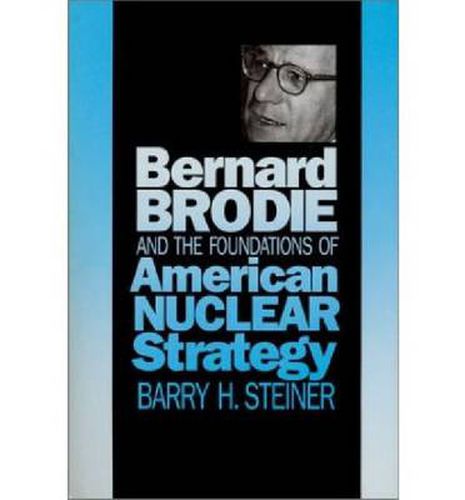Readings Newsletter
Become a Readings Member to make your shopping experience even easier.
Sign in or sign up for free!
You’re not far away from qualifying for FREE standard shipping within Australia
You’ve qualified for FREE standard shipping within Australia
The cart is loading…






Despite recent improvements in East-West relations, security interests of states continue to be shaped by concepts and assumptions about nuclear strategy articulted in the writings of Bernard Brodie. The author provides on examination of Brodie’s work, the intellectual climate in which it was expressed, its influence on other strategic thinkers, and its continuing relevance for our changing times. Bernard Brodie (1910-1978) is best known as the leading conceptulizer and proponent of using nuclear weapons to deter aggression, and as an articulate voice in the debate over the role of nuclear weapons. He was an incisive critic and a grand strategist, integrating military and political instruments and goals. He focused especially on the impact of nuclear weapons on Soviet-American relations and on preventing thermonuclear war. In this volume the author analyzes how and why Brodie’s understanding of weapons of unparalleled explosive force led him to posit the need for revolutionary strategic thinking in broad-minded analytic method and in the focus upon cities as nuclear targets. He shows the effect Brodie’s work had on the intellectual climate in which policy is determined, particulary in his frequent combatting of conventional wisdom. The author moves beyond Brodie’s well-known interest in nuclear war prevention to highlight his focus upon coerciveness in war and his important but virtually unknown early work on target selection. He also documents how the revolution in strategic thought did not come full-blown: Brodie frequently shifted his views to take account of intervening changes in weaponry and means of delivery, his interpretation of Soviet motives, the war in Korea, and the Cuban missile crisis. Examining Brodie’s writings in connection with opposing points of view, the author evaluates both the substance and the methodology of Brodie’s thinking. He disaggregates arguments wherever possible, demonstrating how his method can contribute more widely to progress in national security studies. His evaluation of Brodie’s strengths and weaknesses is a contribution to the current debate about the role of nuclear weapons in political and military affairs.
$9.00 standard shipping within Australia
FREE standard shipping within Australia for orders over $100.00
Express & International shipping calculated at checkout
Despite recent improvements in East-West relations, security interests of states continue to be shaped by concepts and assumptions about nuclear strategy articulted in the writings of Bernard Brodie. The author provides on examination of Brodie’s work, the intellectual climate in which it was expressed, its influence on other strategic thinkers, and its continuing relevance for our changing times. Bernard Brodie (1910-1978) is best known as the leading conceptulizer and proponent of using nuclear weapons to deter aggression, and as an articulate voice in the debate over the role of nuclear weapons. He was an incisive critic and a grand strategist, integrating military and political instruments and goals. He focused especially on the impact of nuclear weapons on Soviet-American relations and on preventing thermonuclear war. In this volume the author analyzes how and why Brodie’s understanding of weapons of unparalleled explosive force led him to posit the need for revolutionary strategic thinking in broad-minded analytic method and in the focus upon cities as nuclear targets. He shows the effect Brodie’s work had on the intellectual climate in which policy is determined, particulary in his frequent combatting of conventional wisdom. The author moves beyond Brodie’s well-known interest in nuclear war prevention to highlight his focus upon coerciveness in war and his important but virtually unknown early work on target selection. He also documents how the revolution in strategic thought did not come full-blown: Brodie frequently shifted his views to take account of intervening changes in weaponry and means of delivery, his interpretation of Soviet motives, the war in Korea, and the Cuban missile crisis. Examining Brodie’s writings in connection with opposing points of view, the author evaluates both the substance and the methodology of Brodie’s thinking. He disaggregates arguments wherever possible, demonstrating how his method can contribute more widely to progress in national security studies. His evaluation of Brodie’s strengths and weaknesses is a contribution to the current debate about the role of nuclear weapons in political and military affairs.